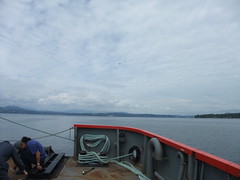
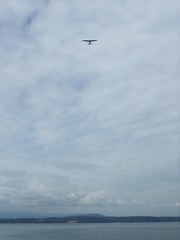
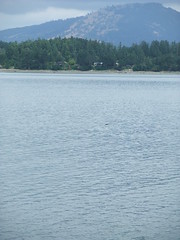
I didn't see any whales, which is also unusual. I saw dolfins, lots of seals, the usual assortment of marine birds, and several of what I now suspect were sea cucumbers (of the less fancy sort).
This is the seal hangout:
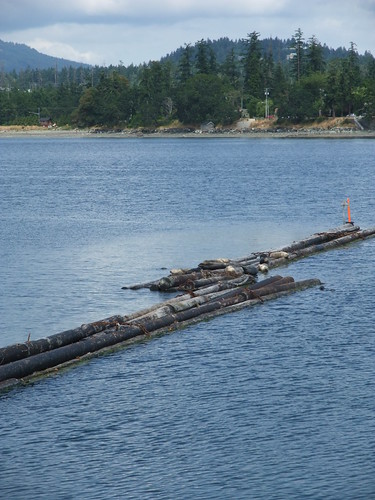
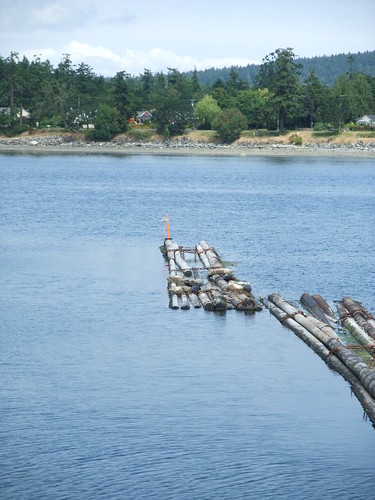
For most of our time at sea, the seas were very calm. I will make do with overcast skies if it means the seas are calm, though the Bos'un was tired of clouds and complained bitterly (with a twinkle in his eye). He was old-school, and missed the days when science ships were for science.
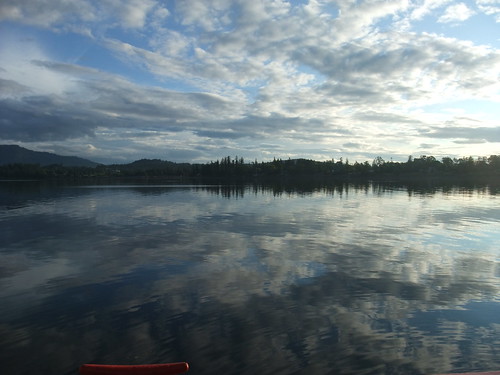
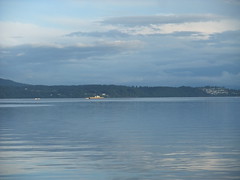
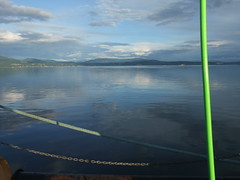
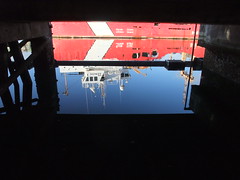
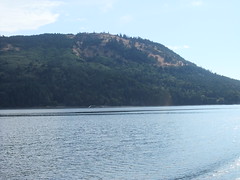
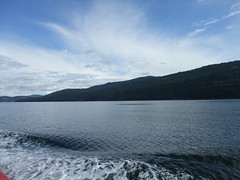
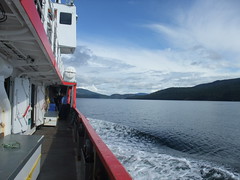
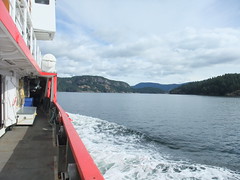
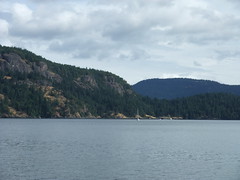
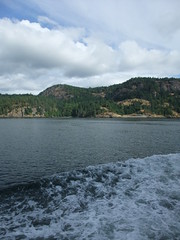
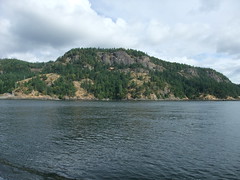
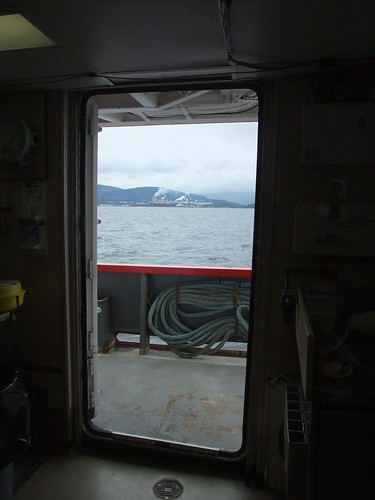
This is Crofton, which is beautiful, except for the pulp and paper mill, which we saw, for days.
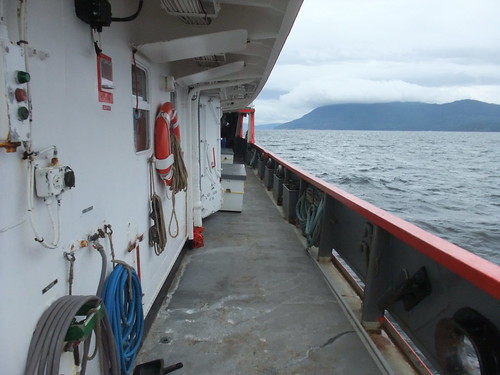
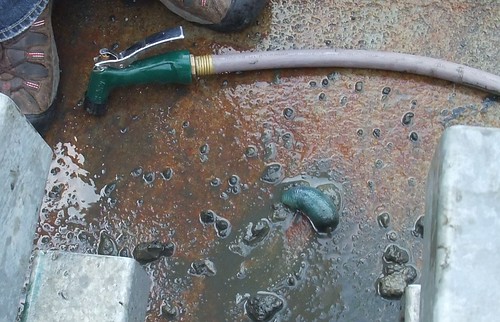
This pickle-like creature was a stowaway on our equipment. I thought he was a sea slug, but now, I think he's a sea cucumber. Though they often have antenna and look fancier, there are definitely creatures which look much more like this, which live offshore BC and are identified as sea cucumbers. As a scientist, I often get asked questions about biology... but I'm a physicist by training (and am specifically a marine geophysicist) and have no biology education whatsoever. Friends know that I get irked by the way the media often treat scientists as some sort of undifferentiated mass of people ("Scientists say..." the tv says and I holler back, "What sort of scientists?! Do they have names?"). I've met biologists, and even occasionally collaborated, and since everything in the ocean can be thought of as inter-related, there are some things I must know. Most of these facts are about micro-organisms. I've learned a fair bit about sea birds, and whales, because they are extraordinaire... and often the sailors can identify them at a glance. I can also identify some fish, shellfish and octopi, which we commonly see with ROVs. But, "slightly irridescent, wrinkly, greenish, legless, bottom-dweller in only a few hundred metres of water" definitely falls into a gap in my knowledge.

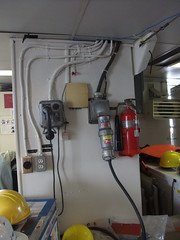









No comments:
Post a Comment